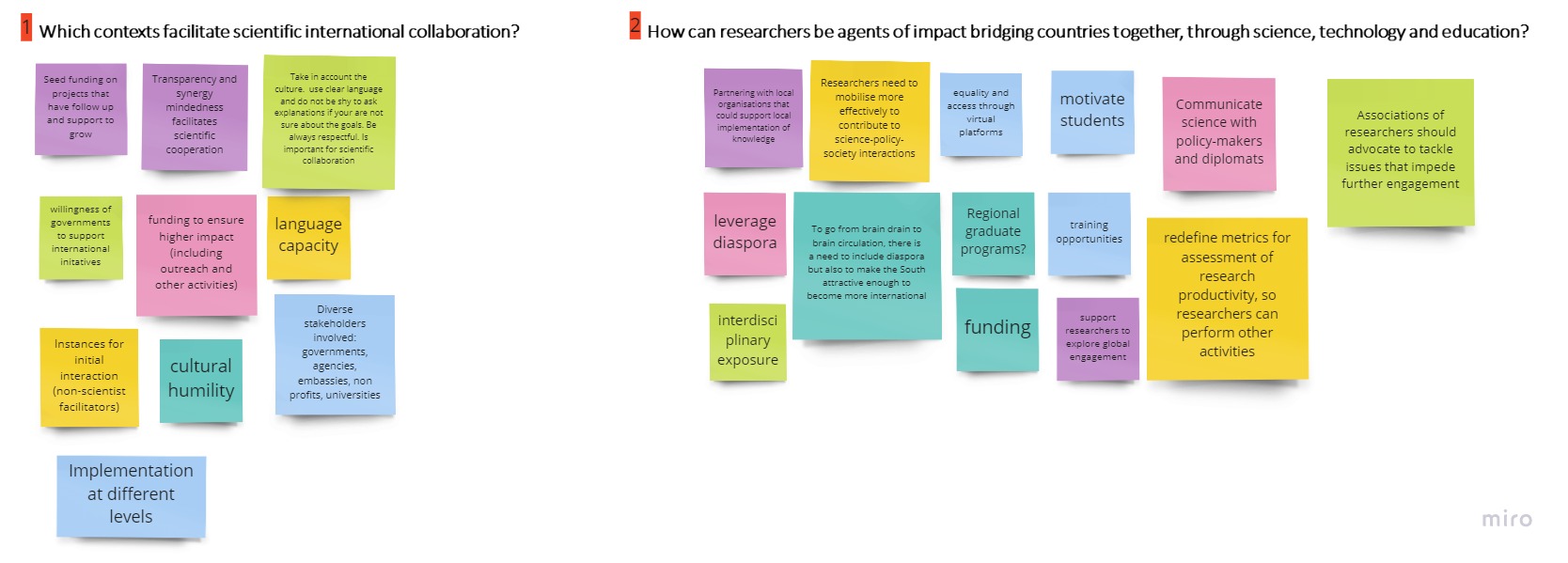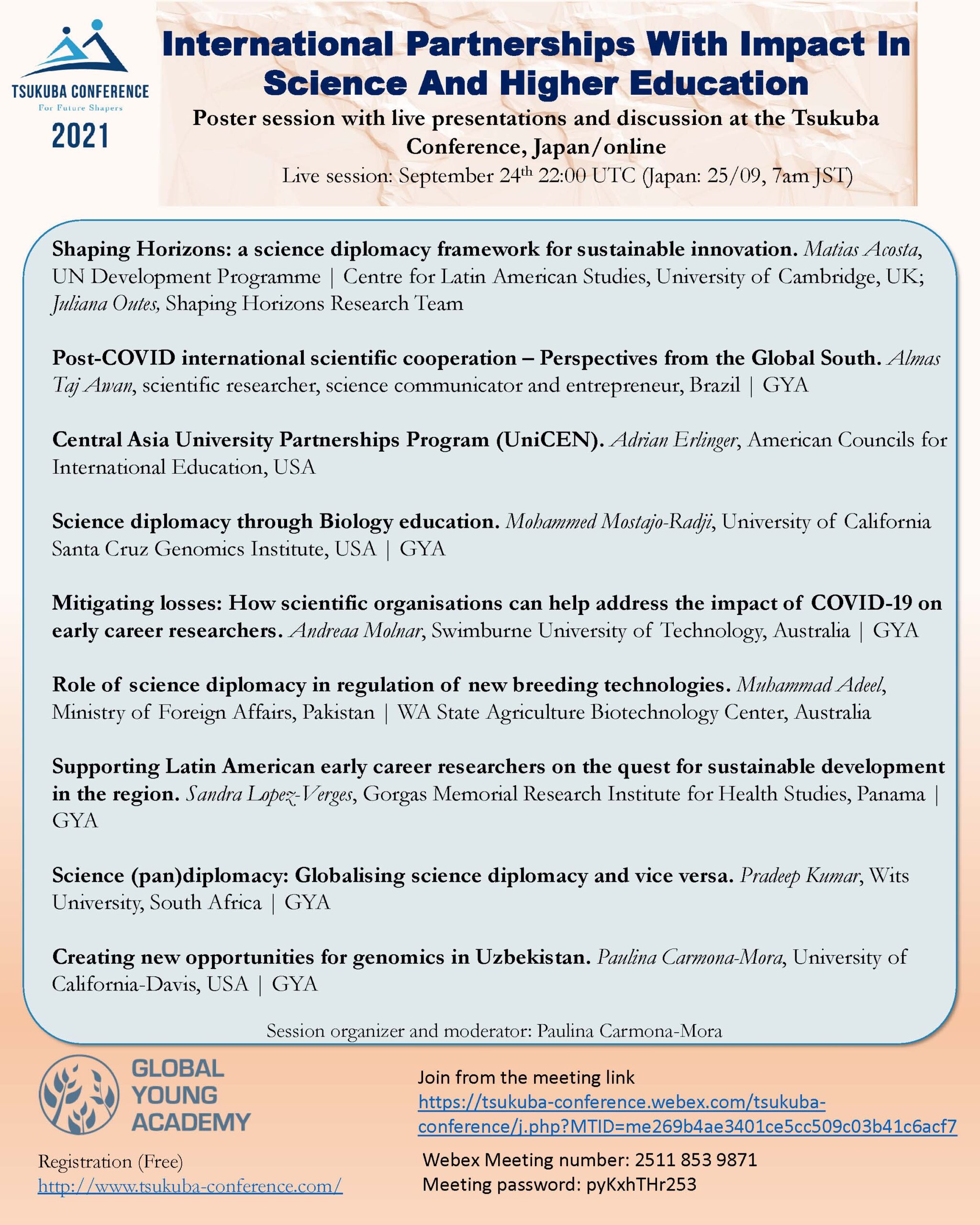Poster session with live discussion
Date: September 24th 10:00 pm- (UTC) / 25th 7:00 am- (JST)
Meeting link: Click here
Poster files: Click here
*Announcement of change of presenter
Previously: Dr. Bernardo Urbani, from Venezuela.
Current presenter: Dr. Andreaa Molnar, Swimburne University of Technology, Australia.
(The topic and poster is the same.)
The shared board of the brainstorming from the live discussion; PDF

International collaboration in science and higher education acquired a new value during the COVID-19 pandemic. While travel restrictions impacted global partnerships, new avenues have been opened to maintain the flow and exchange of ideas. This session will explore meaningful international partnerships in science and higher education from around the world, either in bilateral, regional or multinational formats. Which contexts facilitate scientific international collaboration? How can researchers be agents of impact bridging countries together, through science, technology and education? We will learn from models that have been successful before and during the COVID-19 pandemic, providing concrete and feasible examples to be replicated.
オンラインポスター発表を下記のとおり実施します
日程:9月25日(土) 午前7時~(日本時間)
オンライン発表のリンク:こちらからご入室ください
研究発表ポスター:こちらからご覧ください
*Announcement of change of presenter
Previously: Dr. Bernardo Urbani, from Venezuela.
Current presenter: Dr. Andreaa Molnar, Swimburne University of Technology, Australia.
(The topic and poster is the same.)
ポスター発表において行われたブレーンストーミングの成果物: PDF

International collaboration in science and higher education acquired a new value during the COVID-19 pandemic. While travel restrictions impacted global partnerships, new avenues have been opened to maintain the flow and exchange of ideas. This session will explore meaningful international partnerships in science and higher education from around the world, either in bilateral, regional or multinational formats. Which contexts facilitate scientific international collaboration? How can researchers be agents of impact bridging countries together, through science, technology and education? We will learn from models that have been successful before and during the COVID-19 pandemic, providing concrete and feasible examples to be replicated.


